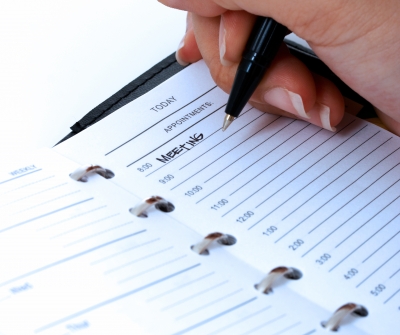How to evaluate your goals and actions

When you want to lose weight and become healthy, the most important thing to do is to evaluate your goals, targets and actions . Only after you have evaluated these things, can you become truly successful in losing weight or becoming healthy.
Why is evaluating your goals, targets and actions important?
When people planned goals or actions they usually don’t look back at what the exactly planned or what they did to reach them. They keep focusing on the future, trying to move towards their goal or target. The problem with this is that after a long time period, they don’t know if they’re still on the right track compared with what they originally had in mind. If they haven’t evaluated their goals or actions, chances are that their original goals or actions have unconsciously transformed over. They also might be performing the planned action for too long, without knowing if it had any effect.
For example: you have a goal for a specific weight, and you are performing actions (like running) to get to that weight. If you don’t evaluate your process regularly, you might lose track of your target weight. You could also lose the overview if your action had any effect at all. By evaluating your goals or actions, you get a clear picture of what happened during the process. You also see how far you still need to go. By evaluating frequently you can discover if your planned actions actually have effect on reaching your goal or target. By evaluating on time, you can prevent yourself from going in the wrong direction or performing useless or wrong behavior.

Set a specific date to evaluate
When you have picked a goal, and planned an action, it is important to immediately set a time and date in your agenda, of when you are going to evaluate these things. By having a date set, you can prevent yourself from losing track of your goals and target. This way you allow yourself to review the goals and targets on time, and you will be able to adjust them when necessary. Plan your evaluation date about 4 weeks after you have picked a goal and started to perform an action.
What do you evaluate?
When it’s time to evaluate, you have to make a clear distinction for yourself of what you are going to evaluate. You can evaluate your goal (target) or your planned actions (behavior). Goals and actions have a slightly different way of evaluating. You start by concentrating on evaluating your goals or targets first. One you’ve done this, you can focus on evaluating your actions.
How do you evaluate goals or targets?
So what is a good way to evaluate your goals or targets? First it helps if you have kept a logbook of what your starting position was and what your target was. This logbook should answer the following questions:
- What was your starting point? (For instance your starting weight)
- What was your goal or target that you chose to reach? (For instance a specific body weight that you wanted to reach)
Once you have this information ready, start the evaluation of your goal/target by trying to answer the following questions:
- Have you reached the goal or target that you planned?
- Was the goal or target to ambitious or too easy?
- Was your goal or target important enough for you at that moment?
- Were there terms or conditions that you did not take into account while you were creating your goal or target? If yes, what?
- Can you create a more challenging goal? Or do you have to adjust to a less challenging goal?
- Are you going to adjust your goal or target?
When you have honestly answered these questions for yourself, you can start making adjustments to your goal and actions accordingly. If you have reached your goal than you can safely say that you were successful. You can now consider choosing another goal which is more challenging, or you can chose to maintain the newly achieved goal.
If you haven’t reached your goal, you have to find out why. Was your goal too ambitious? Did something else in your life come up? Or didn’t you work hard enough for it?
How do you evaluate planned actions?
After you have evaluated your goals or targets, you can continue with evaluating your actions. The more you have logged from your planned actions in a logbook, the better you can evaluate them. When you evaluate your actions, you can start by asking yourself the following questions based on the SMART-principle :
- Was my action: Specific, measurable, attainable realistic and time bound?
- Or in other words, did you plan your action correctly?
After you’ve made sure that you planned your action correctly you can ask yourself he following questions:
- Could you perform your actions as you have planned or were they to ambitious to perform?
- Where you satisfied with your own effort?
- How did you deal with setbacks? And did these solutions and strategy to deal with these setbacks work?
The main reasons for people not to perform a planned action, can have several reasons. The first problem could be that the action was not specified enough and was too vague. The brain needs clear and specific instructions to work. Using the SMART-principle for planning actions can cope with this problem.
The second problem is that people can’t deal good enough with setbacks. Creating solutions for future setbacks, before they happen, can deal with this problem.
Creating future plans, based on what you have learned
Now that you have evaluated your goals, targets and actions, it’s time for you to re-plan them. By having evaluated, you know what went right and what went wrong. You can take what you have learned to create new goals, targets and actions.

Setbacks and failures are normal
While you are evaluating your goals and actions, you need to understand and accept that sometimes things are not going the way you want it to go. You might not have reached your goal or target, or you might have encountered more setbacks than you expected. The most important thing here is to accept that it’s not going well, and realize that this happens to everybody. However, most people will not talk about setback and failures, because people don’t like to discuss this with others. People that are currently successful in life (health wise or career wise) have had more setbacks, than you think. They just don’t talk about it anymore, because it’s a thing of the past. What you see from them, is the result from what took them a lot of time and effort to reach. The fact that they had a lot of setbacks is no longer relevant for them.
This gives a skewed image of the reality that success comes easy. Many people start to believe that successful people were lucky or had a gift. Consequently people are waiting for their luck to change and expect this same ‘luck’ to happen to them. And if luck doesn’t come, they become upset and lose motivation. The truth is that you have to work hard and will encounter many setbacks before you reach your target or goal.
There are however ways to deal with failures or setbacks in a more constructive way:
- Accept the fact that the setback happened and be at peace with that.
- Don’t attach yourself emotionally to this setback.
- Learn from your mistakes and try to figure out what went wrong.
- Plan new ways and approaches, and try it again with this new approach.
Just keep in mind that the most important thing is to try again.
Summary
To successfully evaluate your goals, targets and actions, its useful if you have kept a logbook. While evaluating, make a distinction between goals (targets) and actions. Answer the questions which are stated above, to help you evaluate. With the knowledge you gained from evaluating, you can create better goals, targets and actions. Keep in mind that setbacks are normal and are part of the process of losing weight or becoming healthy.








